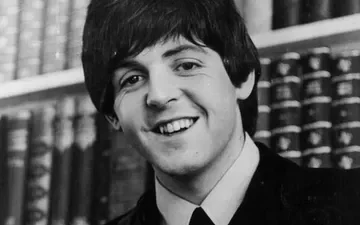Given his track record, it doesn’t feel like anything should phase Paul McCartney anymore. He has been through more generations of music history than anyone, and his ability to craft great tunes out of thin air has given fans some of the most enduring anthems of the last half-century. That’s not to say he doesn’t get cold feet, and he was mortified the minute he went into the studio to work on the track ‘Nothing Too Much Just Out of Sight’.
But to understand what drove McCartney to make something so off-the-wall, you have to realise one thing: he was never the fluffy pop dork many people saw him as. He did have the ability to come up with a catchy tune, but McCartney was making weird tape loops and effects months before John Lennon started doing his own wild experiments on songs like ‘Rain’.
Even when the group started working on ‘Tomorrow Never Knows’, he was the one in charge of making those warped seagull sounds that run throughout the piece. So it wasn’t out of the question for McCartney to think outside the box, but his work with The Fireman is among some of the wildest things any classic rocker has made.
If anything, this feels like it should be a project reserved for some of his older records like McCartney II, which itself sounded like the ramblings of a madman. While the first Fireman albums were comprised of strange soundscapes, Electric Arguments kicks off with McCartney’s first solo song with his “other” band.
Then again, only having producer Youth to bounce off of did make him uncomfortable when he asked to do a cold run of the vocal, recalling in The Lyrics, “Youth said to me, ‘Well, Paul, why don’t you sing some words?’ I said, ‘Well, I’ve got no words,’ and he gave me a knowing look, meaning, ‘Come on! You can do it.’ And I thought, ‘Oh, damn you, alright,’ so I went out on the mic, and I said to everyone in the room ‘Okay, disclaimer: I have no idea what’s gonna come out here, so this could be like a real embarrassment. Probably the most embarrassing moment in my recording career.’”
At the same time, The Beatles never had to worry about getting everything exactly right. Listening back to their performance on the rooftop of Apple Corps, hearing John Lennon intentionally sing gibberish in ‘Don’t Let Me Down’ and make it work is half the reason people loved it. They were having fun because he was having fun.
It’s really the same case here. Although McCartney could have easily spent time fleshing out the right lyrics or putting together some kind of crazy story to accompany them, taking the minimalist approach lets the audience appreciate the instrumentation around him instead.
In that respect, McCartney’s voice just becomes like another instrument in the mix, choosing to either be percussive when it wants to or putting a melody for everyone to follow behind him. He wasn’t necessarily trying to put together a ‘Hey Jude’ at the end of the track, but sometimes an artist just needs to let go and have fun in the studio, even if it means risking total embarrassment.



